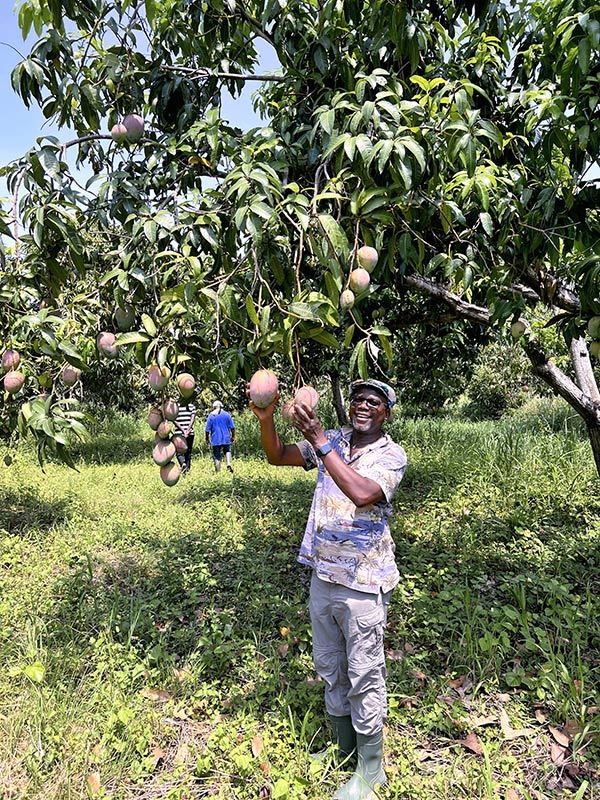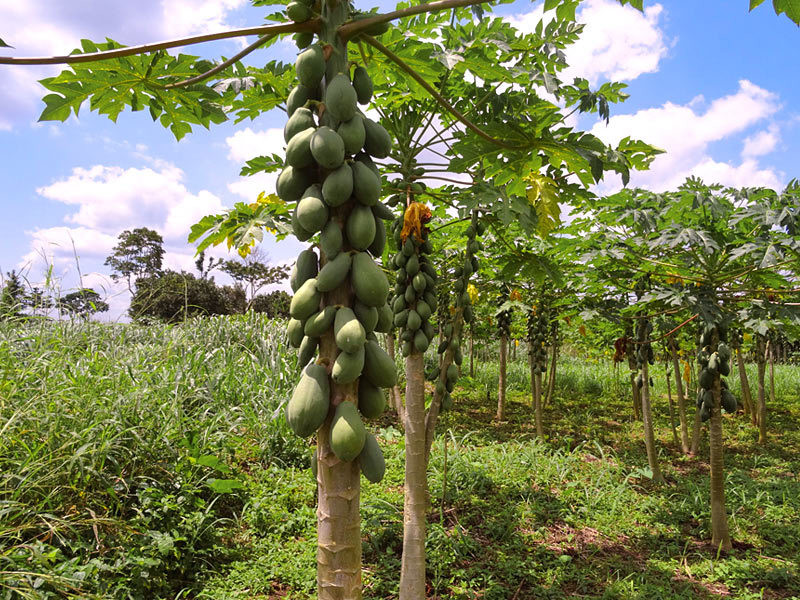The papaya farmers of Wad are found at Krodua and Botoku in the Eastern and central region of Ghana.
Mangoes
Wad grows different varieties of mangoes namely Keitt, Kent, Julie, Erwi, Jaffna, Ardon and Palma. Each variety has its own flavor. The mangoes are not stringy.
Culture - Production
Discover the producers of our mangoes, in Somanya...
Farmers that cultivate Wad’s mangoes can be found in Somanya in the eastern region of Ghana. The soil in Somanya favours the cultivation of mangoes. The region has two seasons of mangoes per year.
The varieties imported by Wad are: Keitt, Kent, Julie, Erwin and Palma.
Mango trees normally produce fruits after 3 – 4 years of planting.
The mango season is clearly defined. The small season starts from Middle of November to early March. The mango season is from End of May to September. However due to climatic change this period may slightly vary.
All the mango fruits on the same tree doesn’t get to maturity at the same time.
That’s why the fruits are not calibrated but selected according to their maturity and transported and when ripe.



